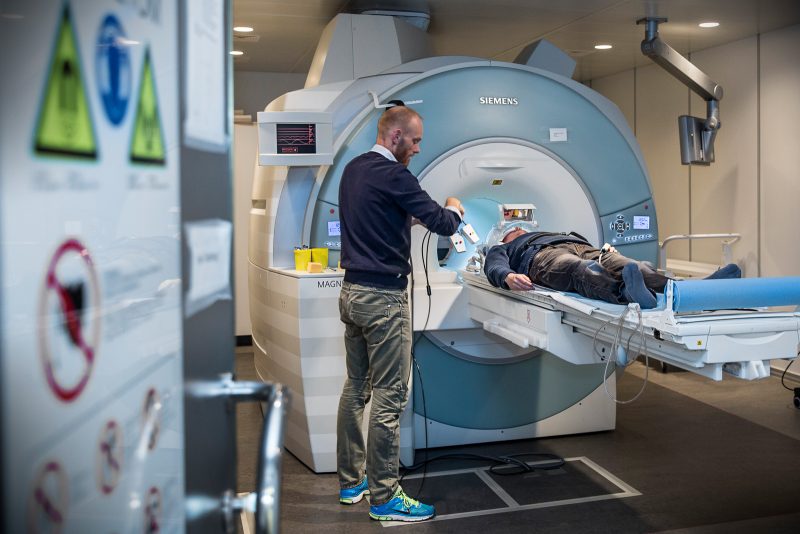The search for biomarkers of neurodegenerative diseases via fMRI functional connectivity (FC) research has yielded inconsistent results. Most functional connectivity (FC) studies in neurodegenerative diseases are blind to non-linear brain dynamics. To circumvent this limitation, we developed a “weighted Symbolic Dependence Metric” (wSDM) measure. Using symbolic transforms, we factor in local and global temporal features of the BOLD signal to weigh a robust copula-based dependence measure by symbolic similarity, capturing both linear and non-linear associations. We compared wSDM with a linear connectivity metric in its capacity to discriminate patients with behavioral variant frontotemporal dementia (bvFTD) from healthy controls based on resting-state data. Participants were recruited from two international centers with different MRI recordings to assess the consistency of our measure across heterogeneous conditions. Machine learning analysis revealed that wSDM yielded better discrimination accuracy between groups than a linear method, and thiswas consistent across centers. Our findings highlight the potential of wSDM to assess fMRI-derived FC data, and to identify sensitive biomarkers in bvFTD.


